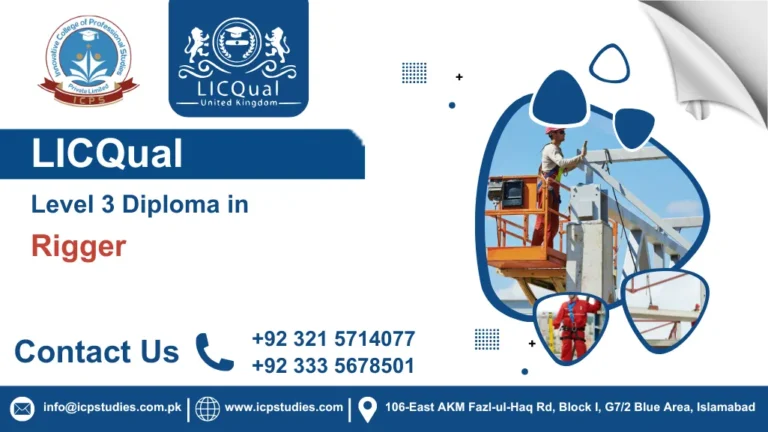In a world where businesses and organizations play a significant role in shaping society, the concept of social responsibility has become increasingly important. Consumers, employees, and stakeholders are no longer just interested in a company’s products or services; they also care about its impact on the environment, society, and the economy. In response to this growing demand for ethical and sustainable practices, the International Organization for Standardization (ISO) introduced ISO 26000 – a comprehensive guidance standard on social responsibility.
ISO 26000 is not a certifiable standard like ISO 9001 (Quality Management) or ISO 14001 (Environmental Management). Instead, it provides guidance for organizations of all types and sizes, including businesses, governments, non-profits, and community groups, on how to operate in a socially responsible manner.
In a world facing numerous social, environmental, and economic challenges, organizations have a responsibility to contribute positively to society. ISO 26000 provides a valuable framework for guiding organizations on their journey towards greater social responsibility. By implementing the principles and guidance of ISO 26000, organizations can not only enhance their reputation and competitiveness but also make a meaningful impact on the world around them.
All About ISO 26000 Social Responsibility
Course Overview
ISO 26000 is an international standard developed by the International Organization for Standardization (ISO) that provides guidance on social responsibility. It outlines principles, practices, and recommendations for organizations of all types and sizes to operate in a socially responsible manner.
ISO 26000 is not a certifiable standard like other ISO management system standards, such as ISO 9001 (Quality Management) or ISO 14001 (Environmental Management). Instead, it offers guidance on how organizations can contribute to sustainable development, address societal concerns, and improve their overall impact on society, the economy, and the environment.
Study Units
- Introduction to ISO 26000
- Fundamental Principles of Social Responsibility
- Core Subjects of Social Responsibility
- Guidance on Implementation
- Case Studies and Best Practices
Admission Criteria
Introduction to ISO 26000:
- Understand the purpose and scope of ISO 26000.
- Recognize the importance of social responsibility in organizational operations.
- Identify the key stakeholders involved in social responsibility initiatives.
- Explain the background and development process of ISO 26000.
- Appreciate the value of implementing ISO 26000 for organizational sustainability and reputation.
Fundamental Principles of Social Responsibility:
- Define and explain each fundamental principle of social responsibility outlined in ISO 26000.
- Discuss the significance of accountability in organizational decision-making.
- Analyze the importance of transparency in communication and reporting.
- Evaluate ethical behavior within the context of organizational practices.
- Understand the concept of stakeholder engagement and its role in social responsibility.
- Recognize the legal and international frameworks guiding social responsibility initiatives.
Core Subjects of Social Responsibility:
- Identify and define each core subject of social responsibility as outlined in ISO 26000.
- Understand the relevance and interconnections between organizational governance and social responsibility.
- Analyze human rights issues within the context of organizational operations and supply chains.
- Evaluate labor practices, including working conditions, diversity, and employee rights.
- Assess environmental impacts and sustainability practices within organizational activities.
- Examine fair operating practices, including anti-corruption measures and responsible marketing.
- Discuss consumer issues and the importance of product safety, labeling, and customer privacy.
- Explore community involvement and development initiatives, including philanthropy and community engagement.
Guidance on Implementation:
- Outline the steps involved in implementing ISO 26000 within an organization.
- Conduct a social responsibility assessment to identify strengths, weaknesses, and improvement areas.
- Develop a social responsibility strategy aligned with organizational goals and stakeholder expectations.
- Engage stakeholders effectively throughout the implementation process.
- Monitor and evaluate social responsibility performance using relevant metrics and indicators.
- Communicate transparently about social responsibility efforts and achievements.
- Identify and address challenges and barriers to successful implementation.
Case Studies and Best Practices:
- Analyze real-world case studies of organizations implementing ISO 26000 or similar social responsibility initiatives.
- Identify best practices and lessons learned from successful social responsibility implementations.
- Evaluate the effectiveness of different approaches to social responsibility in various industries and contexts.
- Apply insights from case studies to inform strategic decision-making and implementation plans.
- Synthesize key principles and strategies for successful social responsibility integration.
- Develop recommendations for organizations seeking to enhance their social responsibility practices based on case study examples.
Ideal Candidate
- Educational Background:
- A minimum of a high school diploma or equivalent is required.
- Preferably, candidates should have completed some coursework or have a background in business, management, sustainability, environmental studies, social sciences, or related fields.
- Language Proficiency:
- Proficiency in the language of instruction (typically English) is required to effectively engage with course materials and participate in discussions.
- If the course is offered in a language other than the candidate’s native language, proficiency may be assessed through standardized language tests or other means.
- Professional Experience:
- While prior professional experience is not mandatory, candidates with experience in organizational management, sustainability, corporate social responsibility, or related fields may benefit more from the course.
- Relevant work experience can provide context and practical insights that enhance understanding and application of ISO 26000 principles.
- Computer Literacy:
- Basic computer skills are necessary for accessing course materials, participating in online discussions or activities, and submitting assignments.
- Candidates should have access to a computer or mobile device with internet connectivity and be comfortable navigating online learning platforms.
- Motivation and Commitment:
- Candidates should demonstrate a genuine interest in learning about social responsibility and a commitment to applying ISO 26000 principles within organizational contexts.
- Motivation to engage actively in course activities, discussions, and assignments is essential for successful completion.
- Access to Resources:
- Candidates should have access to relevant resources, such as textbooks, articles, or online materials, to supplement course content and enhance learning.
- Access to organizational documentation or case studies related to social responsibility practices may also be beneficial for practical application.
- Admission Process:
- Depending on the institution or provider offering the course, there may be an application process for enrollment.
- This may involve submitting an application form, academic transcripts or certificates, a resume or CV, and/or a statement of purpose outlining the candidate’s interest and goals related to the course.
- Some institutions may require candidates to undergo an interview or assessment to determine their suitability for the course.
By meeting these entry requirements, candidates can ensure that they are adequately prepared to engage with the course content, contribute meaningfully to discussions, and derive maximum benefit from their learning experience in the field of ISO 26000 social responsibility.
Learning Outcomes
This course on ISO 26000 Social Responsibility is designed for a diverse range of individuals and professionals who are interested in understanding and implementing social responsibility practices within organizations. It caters to:
- Business Leaders and Managers:
- Executives, managers, and decision-makers responsible for shaping organizational policies and strategies.
- Individuals seeking to integrate social responsibility principles into business operations to enhance sustainability and reputation.
- Sustainability Practitioners:
- Professionals working in sustainability, corporate social responsibility (CSR), or environmental management roles.
- Those looking to deepen their knowledge of social responsibility frameworks and standards to drive positive social and environmental impacts.
- Human Resource Professionals:
- HR managers, specialists, and consultants involved in promoting ethical labor practices, diversity, and employee well-being.
- Individuals interested in understanding the human rights dimension of social responsibility and its implications for workforce management.
- Environmental Professionals:
- Environmental managers, consultants, and sustainability officers focused on minimizing environmental impacts and promoting sustainable practices.
- Those interested in aligning environmental management efforts with broader social responsibility objectives.
- Government and Non-profit Organizations:
- Public sector officials, policymakers, and NGO representatives involved in developing and implementing social policies and programs.
- Individuals seeking to enhance the social impact of government and non-profit initiatives through adherence to social responsibility principles.
- Students and Academics:
- Undergraduate and graduate students studying business, management, sustainability, environmental studies, or related disciplines.
- Researchers and academics interested in exploring social responsibility concepts, frameworks, and best practices.
- Entrepreneurs and Start-up Founders:
- Entrepreneurs and founders of small to medium-sized enterprises (SMEs) looking to embed social responsibility into their business models from the outset.
- Innovators seeking to differentiate their ventures and attract socially conscious investors and consumers.
- Consultants and Advisors:
- Social responsibility consultants, advisors, and auditors providing guidance and support to organizations seeking to improve their social impact.
- Those interested in staying abreast of the latest developments in social responsibility standards and practices to better serve their clients.
Overall, this course is suitable for anyone interested in promoting ethical business practices, fostering stakeholder trust, and contributing to sustainable development through the implementation of ISO 26000 social responsibility principles. Whether you are a seasoned professional or a newcomer to the field, the course offers valuable insights and practical guidance for advancing social responsibility objectives within organizations and across sectors.
FAQs about ISO 26000 Social Responsibility






